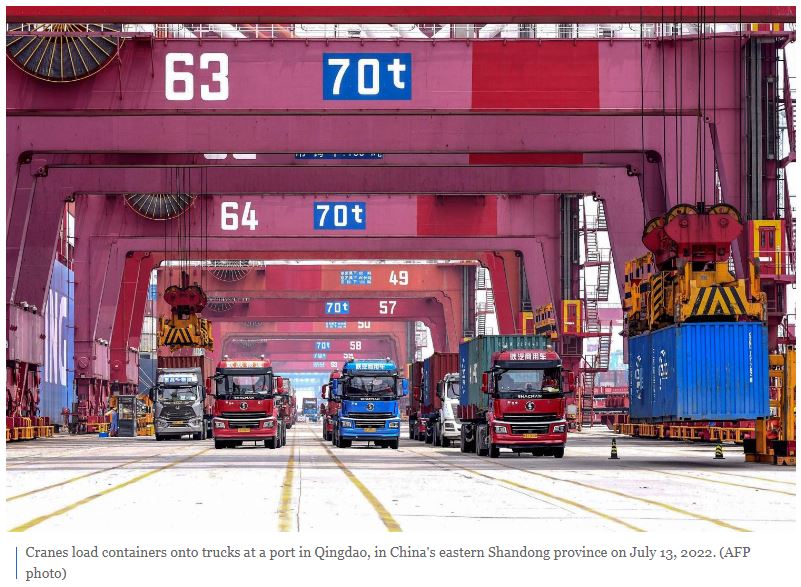Thailand: TNSC recommends exporters refocus on regional markets
Thai exporters have been warned to brace for the impact of China’s economic uncertainties in the second half of the year on top of the looming global recession, runaway inflation and energy crisis.
Chaichan Charoensuk, chairman of the Thai National Shippers’ Council (TNSC), said exporters should have proactive measures and shift their manufacturing and export focus to regional markets such as Asean, especially Cambodia, Laos, Myanmar and Vietnam, where Thailand maintains good relations and demand for Thai products remains robust.
“While the United States and Europe are seeing an economic downturn, sparking recession fears, China’s economy is also likely to face slow growth this year,” said Mr Chaichan. “Such a predicament will result in more difficulties for Thai exports in the remaining months of the year.”
On Friday, the International Monetary Fund (IMF) lowered its growth forecast for Asia Pacific this year to 4.2% — 0.7 percentage points lower than it anticipated in April, and well below the region’s 6.5% growth in 2021.
The fund also cut its 2023 forecast for the area to 4.6%, down by 0.5 percentage points.
Much of the downgrade reflects the ongoing spillover from shocks including Russia’s invasion of Ukraine, China’s economic slowdown and rising global interest rates.
China is tipped to expand by 3.3%, according to the IMF, down from its 4.4% growth projection in April.
The IMF expects the world’s second-largest economy to record 4.6% growth next year, a reduction of 0.5 percentage points that reflects the impact of the zero-Covid policy and the real estate slump.
The IMF warned there will be sizeable spillovers on regional trading partners.
Japan and South Korea, the two largest regional economies integrated closely with global supply chains and China, will also see growth slow on weaker external demand and disruptions to supply chains, warned the IMF.
However, Mr Chaichan said it remains fortunate that China’s inflation rate remains lower than that of other trading countries and will be still an important export market for Thailand.
In the first six months of 2022, exports to China grew by 0.8% to US$18.4 billion compared with the same period last year, contributing 12.4% of Thailand’s total export markets.
Last year, exports to China tallied $37.2 billion, up strongly by 25% from the year before.
Mr Chaichan also urged exporters to speed up pushing export promotions to new markets with high purchasing power like the Middle East, especially Saudi Arabia and the United Arab Emirates.
India is another key market that needs more focus, he said, citing its healthy economic recovery after the pandemic.
He also urged exporters to cash in on recovering the tourism sector and speed up maximising the privileges offered by free trade agreements, especially the Regional Comprehensive Economic Partnership, and mini-free trade agreements to increase trade.
“During the period of the baht’s depreciation, exporters need to accelerate their outbound shipments as much as possible,” he said.
“In the meantime, they also need to be more cautious about higher foreign exchange and repayment risks.”
In the second half of this year, Mr Chaichan also advised exporters to closely monitor the geopolitical risks arising from the Russia-Ukraine conflict and the power division between the US and China, the energy crisis, and a shortage of agricultural raw materials resulting in higher production and logistics costs.
Phusit Ratanakul Sereroengrit, director-general of the International Trade Promotion Department, said the agency is scheduled to hold export promotion campaigns in secondary export markets in 38 cities in 25 countries in the Middle East, Africa and Latin America.
Source: https://www.bangkokpost.com/business/2359239/tnsc-recommends-exporters-refocus-on-regional-markets


 Thailand
Thailand




